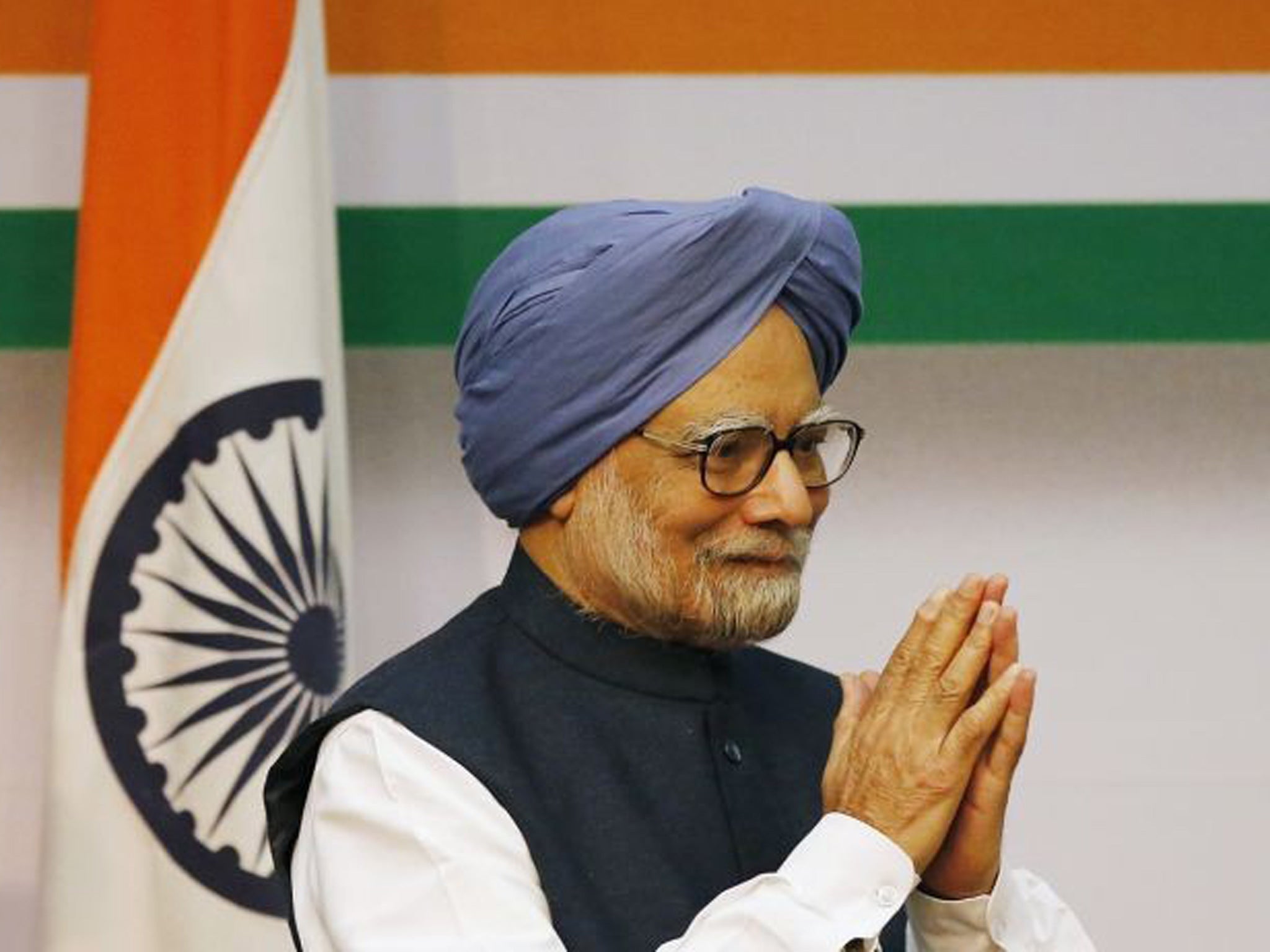Manmohan Singh backs Rahul Gandhi for successor as India PM - and says rival Narendra Modi would be 'disastrous'

India's prime minister used his first press conference for three years to announce something everyone suspected - that he will stand down after the next election whether his party wins or not. He also used the occasion to launch a surprisingly barbed attack on the main opposition candidate, saying he would be disastrous for the country.
During an hour long event that highlighted how India's preparations for a general election are becoming increasingly bitter, Manmohan Singh announced that he will not seek a third term as premier.
The 81-year-old, who has headed a Congress party-led coalition for almost ten years, said he believed Rahul Gandhi, scion of the Nehru-Gandhi family, should become the next prime minister. By contrast, he said Narendra Modi, candidate of the opposition Bharatiya Janata Party, would not be a good leader for India.
"Without discussing the merits of Modi, it would be disastrous for the country to have Narendra Modi as the next prime minister," said Mr Singh, who was asked about claims from the opposition that he had been a weak prime minister.
He added: "If by a strong prime minister they mean you preside over the massacre of innocent citizens on the streets of Ahmadabad, if that is the measure of strength, I do not believe that is the sort of strength this country needs."
Mr Singh, who is usually credited - perhaps too much so - for introducing a series of liberalising reforms which helped India's growth after 1991, became prime minister in 2004. He did so after the Congress party secured a surprise victory and Sonia Gandhi, head of the party and the widow of assassinated Prime Minister Rajiv Gandhi, declined to become premier.
His first term received widespread recognition for continuing reforms as well as introducing a series of bills designed to help India's poorest. The Congress, with Mr Singh as the candidate, was reelected in 2009.
But his second term has been widely condemned, not only by those who have urged him to enact more reforms to help the faltering economy, but by those angered by the repeated revelations of public corruption. Many of the allegations of corruption have been levelled at the government.
In recent weeks and months, Congress has been pushed onto the back foot by a wave of enthusiasm and interest that Mr Modi and the BJP have been able to generate, despite repeated claims over his failure to prevent the massacre of Muslims in the state of Gujarat in 2002. In a series of recent state elections, seen a a indicator as to how people might vote in the general election that must be held by the spring, the BJP beat the Congress in all but one of the contests.
On Friday, the BJP denounced Mr Singh's comments, made during what was just his third press conference in three years.
"[Manmohan Singh] brought agony and misery to the country and its people because of his shameful governance," Ravi Shankar Prasad, a senior BJP leader, told reporters, according to the Associated Press. "You are nobody to call [Mr Modi] a disaster."
As the main parties continue to campaign across the country, both the Congress and BJP are being forced to reassess the political landscape after the emergence of the Aam Aadmi, or Common Man, party. (AAP)
The grass-roots, anti-corruption party became second in a recent election in Delhi and managed to take power in the nation's capital with support from other parties. Riding on the anti-incumbency wave that Mr Modi has also utilised, the party and its leader, Arvind Kejriwal, have since announced plans to contest at least 300 of around 540 seats in the general election.
The party believes is it at the front of a revolution and can replicate its success nationally. "It's seems there is a transformation," said party spokeswoman Shazia Ilmi.
Not everyone is convinced the party has the recognition it does in Delhi. However, the party could be a spanner in the works.
"I can't see AAP seriously contesting 300 seats or having an impact across India," said analyst and journalist Ashok Malik.
"However, its footprint does overlap with an urban geography that was politically crucial for the Congress in 2009 and that Modi is banking on in 2014. If AAP can take away substantial votes in even 20-30 urban constituencies, without necessarily winning all of these, it could damage the BJP."
Join our commenting forum
Join thought-provoking conversations, follow other Independent readers and see their replies
Comments
Bookmark popover
Removed from bookmarks